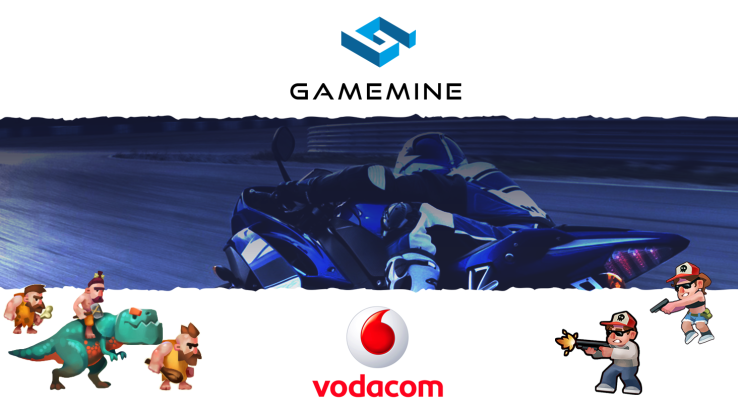

On the heels of a $20 million funding round last month, the new game publishing company GameMine has inked its first big deal with a global carrier.
The company has partnered with the South Africa mobile carrier Vodacom Group to bring GameMine’s subscription-based mobile games to the South African market.
More than 175 GameMine titles will be distributed to Vodacom subscribers ad-free and free of charge during a promotional trial period.
“GameMine recognizes the distinct value and importance of South Africa’s thriving mobile carrier market as an appropriate demographic region for our company’s product, as well as an early trend indicator for the African continent’s entire mobile industry,” said Daniel Starr, GameMine’s chief executive in a statement.
The partnership is a validation for GameMine’s subscription-based pitch to wireless carriers. Rather than rely on ad revenues, GameMine goes through wireless carriers like Vodacom to upsell its customers.
The partnership will significantly boost GameMine’s global subscriber base, as well as its exposure within international mobile carrier markets while providing Vodacom’s South African iPhone and Android users with access to GameMine’s best-in-class mobile games, all of which are being provided in a fully unlocked, ad-free manner.
It’s GameMine’s first big deal since Starr launched the company six months ago. The serial entrepreneur has worked at mobile billing companies for the last decade.
Starr’s last business, Principal Media, was a billing service for international mobile billing. That company was sold to an investment firm for roughly $40 million.

Daniel Starr, chief executive, GameMine
For Starr, the move into game publishing came as a result of watching some of the mistakes and observing the friction that exists in making money off of traditional games.
“Once I got deep into the numbers, I said we should be doing gaming,” says Starr. “We got rid of our old company. Sold it quickly for some cash and jumped into gaming full-speed.”
The company charges through the mobile carriers’ billing platform rather than charging a gamer during gameplay.
Rather than relying on a blockbuster model or the traditional tentpole approach that content companies from game studios to Hollywood studios to record labels have used almost since their inception, GameMine takes more of a “Netflix” approach, Starr says.
GameMine customers aren’t buying into one title, they’re buying a rotating cast of titles that update regularly, are unlocked and ad-free, he said.
“We’re an all-you-can-eat buffet for games,” says Starr. “It’s not, ‘Is steak selling the best, or is chicken selling the best?’ We’re trying to get more people through the buffet,” Starr says.
Leveraging the work he’d done providing billing services to carriers, Starr reached out to carriers and started pitching his game brand.
“The carriers… they want to disintermediate them more than anything you can imagine,” says Starr of the platforms and applications that have been eating into the mobile operators’ revenue. “They’re frustrated that they created these networks and these other companies reap the benefit of the services.”
With the contracts that GameMine is cutting, carriers can take between 5-25 percent of the transaction, depending on the country, Starr said.
Every phone that a carrier ships in the markets within which the company operates will come equipped with GameMine already downloaded, Starr said.
The company’s approach was compelling enough to net it a $20 million investment from the Los Angeles-based investment firm Palisades Venture Capital.

